With roughly 84 percent of the votes counted in the Bolivian election Sunday night, the release of results halted inexplicably for, at this point, more than 15 hours.
In addition to former president and current opposition candidate Carlos Mesa calling for transparency and raising questions of “a manipulation of the vote to impede a second round,” the United States has urged Bolivia to act immediately to ensure an open, fair election.
"Electoral authorities should immediately restore credibility and transparency to the process so that the will of the Bolivian people is respected," Michael Kozak, assistant secretary of state for Western Hemisphere affairs, wrote on Twitter.
The Andean country's top electoral authority announced late Sunday that with 84 percent of the vote counted, President Evo Morales had 45.3 percent, followed by Mesa with 38.2 percent for second place in the field of nine candidates.
That would leave Morales about three percentage points short of the 10 point advantage required to avoid a runoff against Mesa in which opposition parties might unite against him.
Morales, who is seeking a fourth term, declared victory Sunday night and told supporters at the presidential palace that "the people again imposed their will."
A special electoral mission from the Organization of American States also took notice of the unplanned and unexplained delay, saying it was closely monitoring the election and that it urged the Supreme Electoral Tribunal to renew the release of results — though the official count is not due for seven days.
Being forced into a runoff would be “a sharp blow to Morales, whose political success has been impressive and who seemed confident of a first-round win," said Michael Shifter, head of the Inter-American Dialogue, a Washington-based think tank. "Morales' failure to achieve a first-round victory reflects growing concern about a slowing economy, corruption scandals and his determination to pursue a fourth term in defiance of a national referendum and the Bolivian constitution. Many Bolivians are simply weary. If re-elected, Evo will ultimately be in office for nearly two decades."
Mesa is a 66-year-old historian who as vice president rose to Bolivia's top office when his predecessor resigned the presidency in 2003 amid widespread protests. Mesa then stepped aside himself in 2005 amid renewed demonstrations led by Morales, who was then leader of the coca growers union.
"In a second round, the question will be if the opposition can unite behind one candidate," said Christopher Sabatini, a lecturer at the School of International and Public Affairs at Columbia University in New York and a senior research fellow at Chatham House. "In that case Evo may try to divide the opposition and use state resources to guarantee his victory."
Bolivians also elected all 166 congressional seats. Morales' Movement Toward Socialism party lost seats, though it retained a majority in Congress.
Voting, which was mandatory, was mostly calm. Police did say they arrested more than 100 people for violating the country's rigid election-day rules against drinking, large gatherings or casual driving.
During his presidency, Morales has allied himself with a leftist bloc of Latin American leaders and used revenues from the Andean country's natural gas and minerals to redistribute wealth among the masses and lift millions out of poverty.
Surrounded by nations reeling from economic crises, Bolivia under Morales remains a rare example of stability and growth. The economy has grown by an annual average of about 4.5 percent, well above the regional average, and the International Monetary Fund predicts it will grow at 4 percent this year.
Morales, the son of indigenous shepherds, has also been credited for battling racial inequalities.
Many Bolivians, such as vendor Celestino Aguirre still identify with "Evo," as he's widely known, saying people shouldn't criticise him so much. "It's not against Evo, it's against me, against the poor people, against the humble."
But Morales also has faced growing dissatisfaction, especially over his refusal to honor a referendum on limiting presidential terms. Bolivians voted to maintain term limits in 2016, but the country's top court, which is seen by critics as friendly to the president, ruled that limits would violate Morales' political rights as a citizen.
--AP/AFP





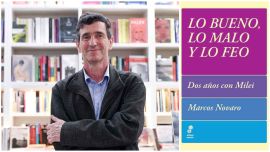



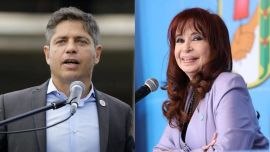




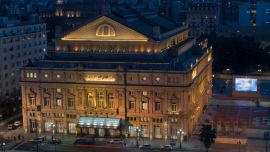


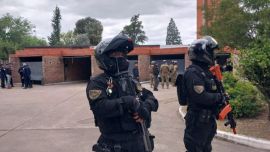
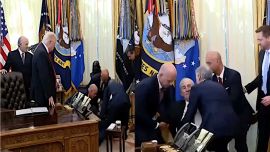
Comments